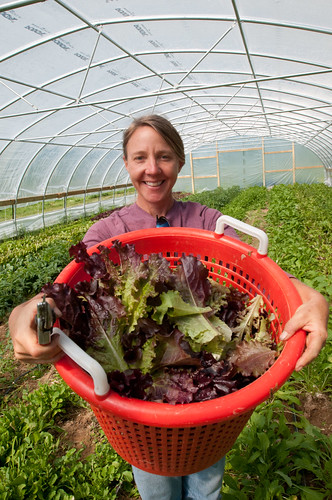
Organic gardening requires a green thumb and a lot of patience. The goal of this hobby is to grow pesticide-free and healthy food that you can enjoy. Are you intimidated? The advice in this article will give you all you need to start growing your own organic food.
Your children will enjoy the experience of working with you in the organic garden. A garden can be a great learning experience for your children, and it gives you a chance to bond while producing healthy food.
If you want a sustainable garden, leave a part of it undisturbed for wildlife to enjoy. The kind of birds and insects needed for pollination will be naturally present on your property and help with your organic garden.
A good tip to help your plants stay healthy and fight diseases is to use aspirin water. Dissolve one aspirin and a half for 2 gallons of water. You simply have to spray the solution on your plants to assist them in warding off diseases. Spraying should be one time every three weeks.
If you want a sustainable garden, leave a part of it undisturbed for wildlife to enjoy. Wildlife can help the plants in your garden to thrive, as insects support plant reproduction, while the excrement of many species contains nutrients which can help to fertilize your soil.
Perennial gardens should be prepared easily and quickly in the ground. Turn over the soil in your garden so it will be soft and easy to plant before spreading wood chips around your garden. Allow a few weeks to pass by before you dig down into the applied soil.
If you plan to raise organic plants inside, you need to think about how much light they will get. If your home does not let in sufficient light, then consider getting plants that thrive in low-light situations. If you already have plants that need full light and the natural light provided is not sufficient, artificial lights can supplement their needs.
When your seeds sprout, they will not be in need of the warmth they needed to germinate. To ensure that your plants do not suffer shock, start eliminating the use of a heat source. Make sure you remember to remove any plastic films that were on the plant containers to repel humidity and warmth. Monitor the seeds carefully so you know the best time to do it.
Try to work as efficiently as possible when gardening. Don’t waste your time by searching high and low for that packet of seeds or spade. In addition to keeping your gardening tools in one location, you should also clean your tools after each use. Get yourself a tool belt, or wear pants with many pockets.
Coffee grounds work great mixed in with your soil. Coffee has a lot of essential nutrients that plants need. Nitrogen, along with phosphorous and potassium, is an important nutrient in the garden. It contributes to healthy and strong growth of the plant, but don’t overuse it.
In order to maximize the efficiency of your gardening, ensure your gardening tools are kept close by you. You can wear an apron or pants that have a lot of pockets, or use a big bucket or can. Have shears, a trowel, gloves and other commonly used garden tools portable and easy to access.
You should always take spacing into account when placing plants in your organic garden. As plants grow and spread out, you will not always know how much space will be required. Space is necessary for the plants, but air circulation is also important. Keep this in mind when appropriating spots to plant your seeds.
Compost Pile
Apply equal portions of dried plant material and green into your compost pile. Green plant mulches include everything from fresh grass clippings, to unwanted vegetables, to recently pulled weeds. Dry materials, like sawdust, cut up wood pieces, cardboard, straw and shredded paper are good for your compost pile. Avoid meat, ashes, charcoal, plants with diseases and manure from carnivores.
Keep plastic bags handy to cover your muddy gardening shoes. This helps you stay in the zone so that you can continue gardening when you have completed your tasks in the house.
To garden properly in an organic fashion, requires a lot of patience, a lot of elbow grease and even more know-how. The rewards are healthy, delicious foods without the harsh chemicals of today’s corporate farming practices. If you put your mind to it, you could become an excellent organic gardener.
Learn more – the http://www.townofclaytonnc.org/


Recent Comments